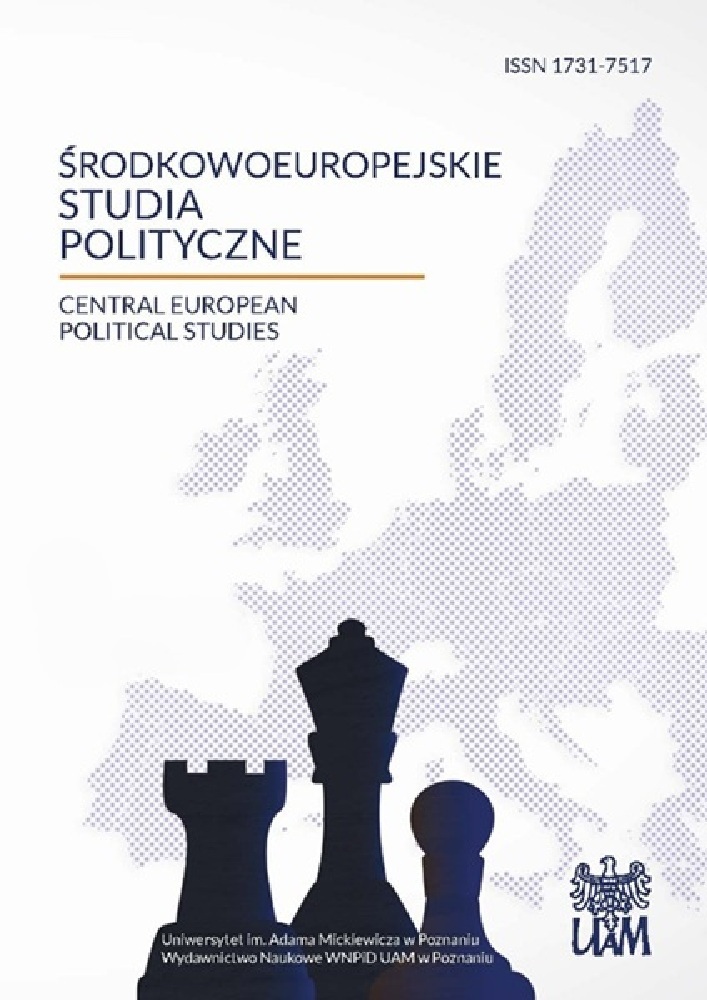Abstrakt
One of the main issues in the debate on the Treaty of Lisbon was to determine the legal international status of the European Union. The doctrine of international public law and European law stipulates personality as the ability to acquire rights and enter into international commitments. Before the Treaty of Lisbon came into force a highly animated and varied discussion continued on this issue. Among other things, it concerned the issues of whether international organizations are the subjects of international law, the nature of their subjectivity (primary or secondary), the relationship between the Community’s founding treaties, and, finally, whether European law constitutes an autonomous legal system. The most serious controversies, however, were raised by the legal international qualification of the European Union. In the opinion of a portion of representatives of European law, the EU was considered to be an international organization although it did not have legal personality, in contrast to the European Community. Therefore, it was usually defined as a specific structure in statu nascendi. This dispute was ultimately concluded by the Lisbon Treaty which replaced the three-pillar legal structure with a uniform international organization, and the European Community ceased to function. Yet the new legal system retained the European Atomic Energy Community, which seems an inconsistent and flawed decision, albeit a politically justified solution.Bibliografia
Akt końcowy Konferencji Przedstawicieli Rządów Państw Członkowskich, Dok. CIG 15/07, Bruksela 3 grudnia 2007.
Barcz J., Przewodnik po Traktacie z Lizbony. Traktaty stanowiące Unię Europejską. Stan obecny oraz teksty skonsolidowane w brzemieniu Traktatu z Lizbony, Warszawa 2008.
Barcz J., Zasadnicze reformy strukturalne ustroju Unii Europejskiej, w: Traktat z Lizbony. Główne reformy ustrojowe w Unii Europejskiej, red. J. Barcz,Warszawa 2008.
Brodecki Z., Prawo europejskiej integracji, Warszawa 2000.
Czapliński W.,Wyrozumska A., Prawo międzynarodowe publiczne. Zagadnienia systemowe, Warszawa 1999.
Emmert F., Morawiecki M., Prawo europejskie, Warszawa–Wrocław 2001.
Galster J., Witkowski Z., Kompendium wiedzy o Unii Europejskiej, TNOiK, Toruń 1996.
Hirst P., Thompson P. G., Globalisation and the Nation State, w: The Handbook of Globalisation, ed. J. Michie, Chaltenham 2003.
Klafkowski A., Prawo międzynarodowe publiczne, Warszawa 1966.
Konwencja wiedeńska o prawie traktatów z 23.05.1969 r. (Dz. U. 1990, Nr 74, poz. 439).
Mik C., Europejskie prawo wspólnotowe. Zagadnienia teorii i praktyki, t. I,Warszawa 2000.
Opina ETS 1/76, Zb. Orz. 1977, w:W. Czapliński, R. Ostrihansky, P. Saganek, A.Wyrozumska, Prawo Wspólnot Europejskich. Orzecznictwo, Warszawa 2005.
Prawo Unii Europejskiej, pod red. J. Barcza, Warszawa 2006.
Prawo instytucjonalne Unii Europejskiej, red. M. M. Kenig-Witkowska, Warszawa 2008.
Czapliński W., Ostrihansky R., Saganek P., Wyrozumska A., Prawo Wspólnot Europejskich. Orzecznictwo, Warszawa 2005.
Schweitzer M., HummerW., Europarecht. Das Recht der Europäischen Gemeinschaften (EKGS, EWG, EAEG) – mit Schwerpunkt EG, Berlin 1996.
Sprawa 6/64, Flamino Costa v. ENEL, Zb. Orz. 1964.
Sprawa 22/70 Komisja Wspólnot Europejskich v. Rada Wspólnot Europejskich (sprawa ERTA), Zb. Orz. 1971.
Sprawa Cornelis, Kramer i inni, Zb. Orz. 1976.
Tyranowski J., Prawo europejskie, Poznań 2005.
Wróblewski M., Dyskurs konstytucyjny w Unii europejskiej – pojęcie konstytucji i konstytucjonalizmu w porządku prawnym Unii Europejskiej, w: Konstytucja dla Europy. Przyszły fundament Unii Europejskiej, red. S. Dudzik, Kraków 2005.
Zacker Ch.,Wernicke S., Prawo Europejskie w pytaniach i odpowiedziach,Warszawa 2000.
Licencja
Copyright
© 2011, Uniwersytet im. Adama Mickiewicza w Poznaniu, Wydawnictwo Naukowe Instytutu Nauk Politycznych i Dziennikarstwa
OPEN ACCESS
